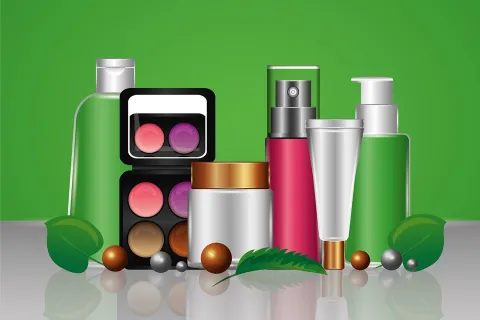
The cosmetic industry in the European Union (EU) and the United Kingdom (UK) is renowned for its stringent regulatory standards, designed to ensure the safety and quality of products. Staying updated on the latest ingredient regulations is critical for cosmetic brands aiming to remain compliant while meeting evolving consumer expectations. This blog delves into recent regulatory updates, compliance insights, and emerging trends shaping the cosmetic landscape in the EU and UK.
Regulatory Authorities and Framework
Cosmetics in the EU are regulated under the EU Cosmetics Regulation (EC) No. 1223/2009, a comprehensive framework that governs everything from product safety to labeling. Post-Brexit, the UK introduced its version, known as the UK Cosmetics Regulation (UKCR), mirroring much of the EU framework while incorporating country-specific nuances.
Both frameworks emphasize ingredient safety, requiring brands to conduct thorough assessments to ensure products are safe for consumer use.
Recent Regulatory Updates on Ingredients
Allergen Disclosure Expansion (EU):
The EU has introduced new labeling requirements for fragrance allergens in cosmetic products through Commission Regulation (EU) 2023/1545, which amends Regulation (EC) No 1223/2009. This regulation expands the list of fragrance allergens that must be individually labeled when their concentration exceeds 0.001% in leave-on products and 0.01% in rinse-off products. A transition period is provided, allowing products to be placed on the market until 31 July 2026 and for withdrawal of non-compliant products by 31 July 2028.
Microplastic Ban (EU):
The European Union has introduced a comprehensive ban on intentionally added microplastics in products, which came into effect on October 17, 2023. This ban, outlined in EU Regulation (EU) 2023/2055, includes various transitional periods for phasing out microplastics depending on the product category, such as 4 years for rinse-off cosmetics, 6 years for leave-on products like sunscreen and deodorant, and 12 years for makeup products. The legislation aims to significantly reduce microplastic pollution and is based on scientific insights, with input from stakeholders including scientists and NGOs.
UK Specific Regulations:
The upcoming UK ban on the supply and sale of wet wipes containing plastic: The Government will ban the supply and sale of wipes containing plastic across the UK. It will not, however, ban the manufacture of wipes containing plastic for export. The Devolved Nations will each lay their legislation enforcing the ban. The legislation is expected to be in place across the UK by the end of 2024 and will have an 18-month transition period from the point each separate piece of legislation is passed.
Compliance Insights for Businesses
- Ingredient Traceability: Brands must maintain detailed records of ingredient sources, safety data, and compliance with the respective regulations.
- Labeling Adjustments: Updated labeling to reflect new allergen disclosures is required by law.
- Sustainability Focus: With regulations tightening on environmental impact, incorporating eco-friendly alternatives and recyclable packaging is a proactive compliance strategy.
- Engaging Local Representatives: For UK compliance, brands must appoint a Responsible Person (RP) based in the UK, responsible for ensuring regulatory adherence.
Industry Trends
- Clean Beauty Movement: Consumers are prioritizing products with minimal synthetic additives, pushing brands to reformulate with natural ingredients.
- Digitization of Compliance: Digital tools and AI are being leveraged to simplify regulatory submissions and ensure real-time compliance tracking.
- Sustainability as a Differentiator: Sustainable ingredient sourcing and packaging innovations are becoming central to brand narratives.
Final Thoughts
The regulatory environment in the EU and UK continues to evolve, driven by a commitment to consumer safety, transparency, and sustainability. For cosmetic brands, staying ahead of these changes is not just about compliance—it’s about building trust and fostering long-term consumer loyalty.
By embracing regulatory updates and aligning with emerging industry trends, businesses can thrive in the highly competitive EU and UK markets. Partnering with regulatory experts, such as Freyr, can simplify the compliance process, allowing brands to focus on innovation and growth in this exciting landscape.









